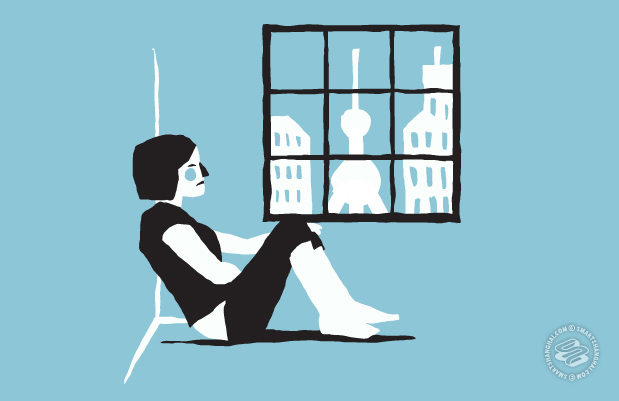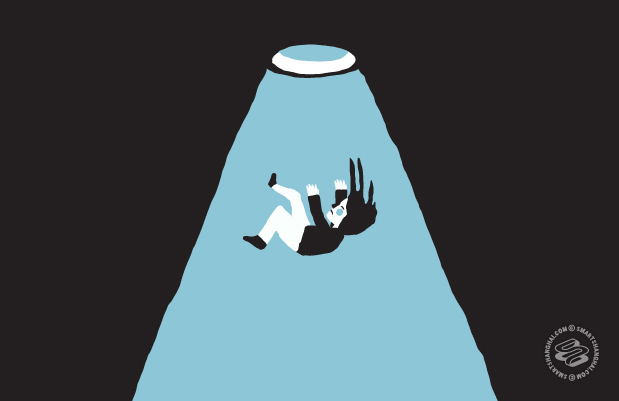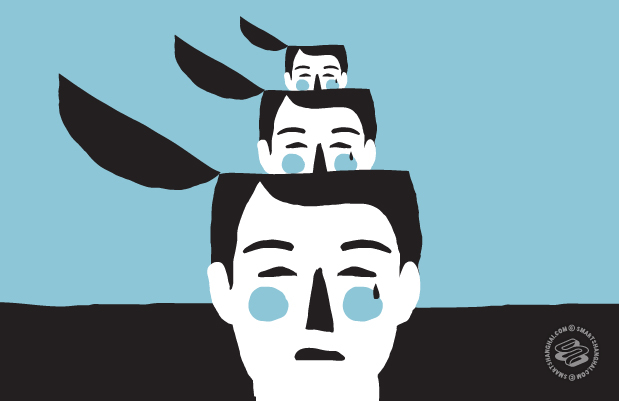What should you do when you get the blues in Shanghai? We spoke to five experts from various backgrounds to find out.
The Experts
-
- Carrie Jones is the Director of Counseling for Community Center Shanghai. She is a licensed Clinical Social Worker from the state of Texas, USA, where she worked in a number of settings including a family counseling center, a substance abuse center, and several schools. She has a Master's Degree in Social Work from Baylor University.
-
- Coreene Horenko is a free helpline Lifeline Shanghai's Outreach Manager. Coreene has been with Lifeline for six years as a trained volunteer taking calls from Shanghai's foreign residents in need.
-
- Jeff Tan is the founder of REV, a personal and corporate development company. He is a certified Neuro-Linguistic Programming Trainer and Certified Hypnotherapist, and he holds a Master Degree in Professional Counseling.
-
- Robert Applegate is the Founder and Spiritual Director of Center for Spiritual Living - Shanghai, which offers classes, events and retreats for people on their spiritual path. He is also helped create the annual Healing Arts Festival and the G.R.A.C.E. initiative. He is a licensed Spiritual Counselor from California.
-
- Olivia Xiao is a mindfulness trainer and life coach at Octave, which offers classes, training, and retreats for personal growth. She is a veteran Neuro-Linguistic Programming practitioner and a member of The International Association of Coaching. Olivia specializes in life coaching and mindfulness training to facilitate personal transformation.
What problems that lead to unhappiness are specific to Shanghai?

I believe that 'wherever you go, there you are', so the issues that one faces are not dependent on geography. Having said that, however, for people who are new to living in Shanghai they will usually face a tsunami of the unfamiliar. When so many basic aspects of daily life are new the sheer amount of data one's brain has to process just to clean your clothes or buy water can be overwhelming. People cling to what they are familiar with and long for it even if it wasn't so great 'back home.' The more they cling to the familiar, the less they are able to acclimate to their new environment. When we aren't open to fully experiencing where we are, we miss being energized by it and slowly wind down like a top.
-The transient nature of friendships in Shanghai may lead some people to not even make an attempt to solidify casual acquaintances into deeper friendships. There’s a “why bother” attitude in this city as some people have a belief that friendship means everyone being in the same place at the same time.
-Worries about food and air quality. While we can’t do anything about the air quality, some people are too lazy to do anything about their food quality and consider it beyond their control. It's not. With a little effort people can change their habits to eat imported / organic stuff or, failing that, shop online at stores that can provide better quality food.
-Marital or relationship issues can blow up because of the new environment. Most breadwinners coming to SH work very long hours -- much more than when back home --and coupled with frequent business trips, this can contribute to relationship issues.
There are the obvious issues of culture shock and transition / adaptation and also, at the opposite end of the spectrum, cultural burnout. Many people here experience some degree of loneliness. They may have many social acquaintances but few close friendships and some people are hesitant to really invest deeply in relationships knowing that they will likely be temporary. Even within family life, there can be unique dynamics here where a partner / parent travels frequently. This leaves the other one here to manage day-to-day life and details alone and can make some relationships vulnerable to infidelity. Many people here also find themselves having to live in a dual reality – managing life here and life back home too. There are also practical issues here such as air and food / water safety that can weigh heavily on people’s minds.
What causes of unhappiness do you hear about most?

One of the main reasons people call us is for difficulties in a relationship. This could be an intimate relationship, or with a work colleague or a family member. We talk through these problems and support our callers in their decision making, recognizing that every situation is unique. An added layer is that many of our callers are often expressing frustrations from cultural misunderstandings with their partner. For couples with children, this can be extremely challenging. Other topics discussed on the helpline involve mental health issues, work-related problems, addictions, and people in crisis who feel they have nowhere to turn.
For many expats, staying in Shanghai is only a short period of time of their life; some of them even have no idea how long are they going to stay. This sense of uncertainty brings challenges for them to develop something serious in the long-term, e.g. career development or the development of a committed relationship. It is even hard to build a sustainable friendship since friends come and go often. And all those are important components of a healthy support system for a person especially for those who live abroad. Without this, expats would easily feel lonely and unsupported, which could lead to depression if they are under great stress for a long time.
At the Community Center, the top three most common issues we see clients for are depression, anxiety, and relationships (especially marriage, but also can be parenting, etc). Other common issues include eating disorders, workplace / school stress, anger, and grief and loss. For children, adaptation and transition issues, behavioral issues, and sleep issues are common. Feeling the pressure of high expectations is common among clients of all ages – kids, teens, and adults alike.
For trailing spouses (I really hate that term) it’s their loss of identity. Many worked previously and some held important positions only to give them up to follow their spouse. The male trailing spouses I’ve met actually enjoy their “tai tai” life, but many of the women don’t like it but have no choice.
For the breadwinner, I can’t really pinpoint the main issue as there’s are several. But it ranges from anything you would hear an American say in the US, a German in Germany, or any foreigner in their own country. The problems are quite universal.
What can people do to help resolve these issues?

Self-care is vital – pay attention to the basic things like sleep, diet, and exercise; these seem obvious but often are the first to suffer when we are unhappy. Don’t be afraid to reach out and ask for help when you need it, whether from family and friends or from professionals. I frequently remind people that asking for and accepting help is not a sign of weakness, but rather the exact opposite – a sign of strength. If you are spiritual or religious, draw on this strength. Even for those who are not, things like mindfulness and meditation can help.
For the issue of feeling overwhelmed with so many new and misunderstood things, the trick is not avoidance, but finding a way to rest when you get overwhelmed and then jump back into Shanghai life with all the courage and persistence you can muster. Making a bubble might serve as some protection for a while, and sometimes it is necessary to protect yourself until you can find that courage and persistence, but the bubble technique doesn't work for very long. Many of people's issues are too easily blamed on life in Shanghai. What is really happening is the unraveling of our neatly wound exterior lives that don't seem to function the same way in a new environment. Whatever we used to keep us safe, happy and successful back home aren't working. To resolve this we need to go deeper beyond the external habits we have formed and find our essential selves. From this foundation, we can move to develop a life that works anywhere.
- Replace the tag “foreigner” with “global citizen”. When you label yourself as a foreigner, you've already built barriers unconsciously. Instead, tag yourself with “global citizen”, that means you and the locals are all global citizens who come from the same place, the earth, which is true, right? Just with this small shift, it changes the way you live your life from a limited point of view to a higher, integrated point of view. Your needs and wants as a human being are all the same: safety, satisfaction, and connection. With this understanding it gives you a sense of belonging, you can easier to connect to others and cultivate acceptance and compassion when you are different.
-Build your connection with the city. Take yourself as a new-born baby to the city, take everything happened as interesting experiences, create your “growing” memories with the city( E.g. the first day you arrive in Shanghai, the first restaurant you went, the first road you get lost, the first Chinese world you learned), celebrate your own “big day” here. It changes your relationship with the city. One day you look back will find it is full of beautiful memories here and you already fall in love with your second hometown.
-Gain clarity about your life. Maybe you don’t know how long are you staying in Shanghai or just living here temporarily. This doesn't mean you have to put your life on hold. Take some time to sit and think, what ideal life you want to live and what kind of person you want to be. Then ask yourself how does your life in Shanghai help you to achieve what you want to be in long run.
-Find your center within yourself. Yourself is the most solid support for yourself. Learn to love yourself and create “home” within where you feel safe and at ease (e.g. take good care of yourself physically and mentally, let go of self-judgement no matter what, do something that gives you confidence and energy). It is the place you can always go back wherever you are tired and “homesick”.
Often the path to being happier is to recognize what you can change and continue to work on accepting what you can’t. This is difficult for all of us but in committing to making this style of thinking a habit -- it gets easier with time. Actively work on what you can change, make a plan with a realistic timeline; break it down to what you can do today, tomorrow, this week and so on.
To combat loneliness start by reaching out to the many networking groups that exist in Shanghai. Do your research, ask around, and be curious. Don’t say no to that offer of drinks or coffee every time and recognize that putting yourself ‘out there’ can be exhausting. Take time out to recharge and acknowledge the progress you’re making even if it may feel slow -- forward is forward.
Are there any easy tricks that can make a big difference in your day-to-day?

Try to maintain a sense of humor and perspective. In the challenging, this-is-China type moments / days, I remind myself that as frustrated, irritated, or annoyed as I may be at the time, later it often makes for a hilarious story to tell at dinner, during the next trip back home, or on Facebook. Some people find it highly beneficial to keep a gratitude journal or to engage in some sort of happiness project to help keep their focus on the positive.
Make local friends beyond your driver or ayi. My husband and I have lived in Shanghai for almost 9 years and lived in Beijing for 2 years prior to that and it is primarily our local friends who keep us here and who add value, significance, and meaning to our life here. Pay attention to who you surround yourself with. If you spend time with people who complain a lot and tend to focus on the negative, it is likely to have a negative influence on your own feelings.
Without sounding too spiritual, the easiest trick is to set an intention for the day, and repeat it constantly when things start going awry. Examples of simple yet powerful intentions are to “feel at peace regardless of what’s going on around me”, or “to feel grateful for my team’s efforts”. Seems very hokey or airy-fairy but intention setting has been researched by scientists and has proven results.
-Your energy goes wherever your attention goes. Every morning the first thing you do before you get up, setting your intention that how do you want to live the day or what helps you to be happy. The more specific the better, e.g., "be focused", "keep a smile no matter what", "embrace different ideas", "do a small favor for others". By doing this you are cultivating the habits of happiness.
-Happiness is not having what you want, it is appreciating what you have. Write down three things that you whole-hardheartedly appreciate for the day, and one is suggested to appreciate yourself. You will find yourself happier than before.
-Mindfulness has been proved an effective way to reduce stress, let go of judgment, live in the present, be open (the list goes on and on). Every day, give yourself 10 minutes of quiet time. You can sit or take a walk, doing nothing but focus your attention on your breathing. When there are thoughts come up don’t go with it, just gently bring your attention back to your breathing. Continue practicing this and you will create your inner peace and be happier.
-Breathe. Exhale. Repeat. Recent studies are proving the value of controlled breathing to reduce stress and calm the nervous system. Steady, slow breathing tells the brain that all is well and the mind calms. It’s been called meditation for those who don’t meditate. Something that can be readily adopted as part of day-to-day life.
- Exercise. Yoga, walking, Pilates, crossfit, whatever you enjoy. Great way to connect with a like-minded community.
- Express gratitude. Choose to say thank you to those who help and support you each and every day for the little things. By concentrating on all the positive things in our daily lives promotes happiness. Make it a habit by writing a list of five things each day that you are grateful for.
- Volunteer. By getting involved you may just find your community. Whilst it is a cliché that giving is rewarding, it is true and your happiness gets a boost!
It’s important to recognize that if you are struggling with low mood for an extended period of time, please reach out for support. Taking preventative steps for own well-being is important.
Further Resources

-
- Lifeline Shanghai is a free-to-call crisis hotline providing confidential emotional support and nonjudgmental listening. They take calls from 10am-10pm every day about any topic. You can learn more about them in our feature article [Communities]: Lifeline Shanghai.
-
- The Shanghai Mental Health Association (SIMHA) is an association of mental health therapists from various agencies and organizations in Shanghai. You can see multiple options of available mental health practitioners in Shanghai on their website.
-
- Community Center Shanghai is a nonprofit organization connecting the expat community and providing for their needs. They operate in several locations in Shanghai offering classes, workshops, as well as providing counseling services. You can learn more about them in our feature article, [Communities]: Community Center Shanghai.
-
- Healthy in Shanghai is a "master schedule" to help the international community in Shanghai stay informed. It lists all the free or low-cost health and wellness seminars and workshops happening in Shanghai.
***
Responses edited for clarity and length.
This is a place for show life about china, If these articles help you life better in china, Welcome to share this website to your friends, Or you can post questions about china life in FAQ, We will help you to find the right answer.

![[How to]: Be Happy in Shanghai](https://www.life-china.cn/wp-content/uploads/2019/07/1488440789.jpg)
![[How to]: Get into China Through Hong Kong and Macau](https://www.life-china.cn/wp-content/uploads/2022/11/6a50-7b3c-477c-a7cf-168e158b1cb2.jpg.680.0-440x264.jpg)
![[How To]: Play the Lottery in Shanghai](https://www.life-china.cn/wp-content/uploads/2019/07/1530532366-440x264.jpg)
![[How To]: Recycle in Shanghai](https://www.life-china.cn/wp-content/uploads/2019/07/1541655890-440x264.jpg)

Recent Comments